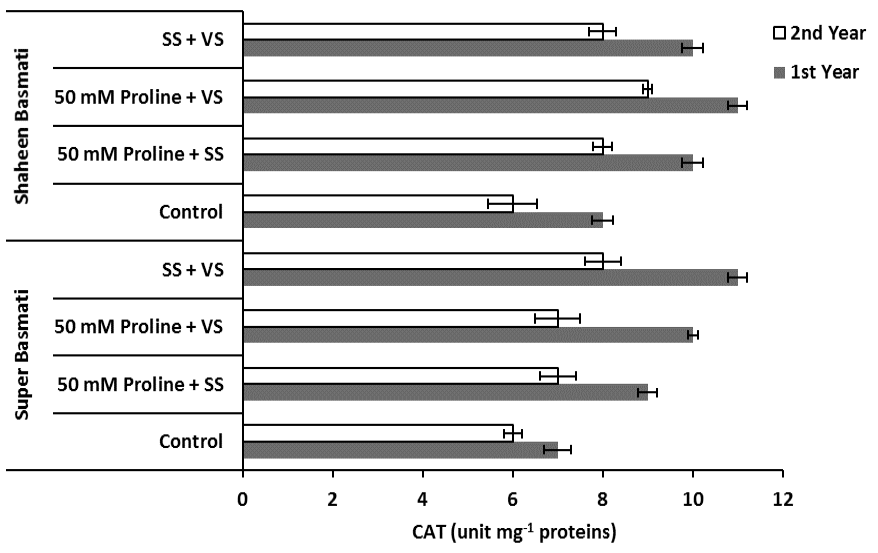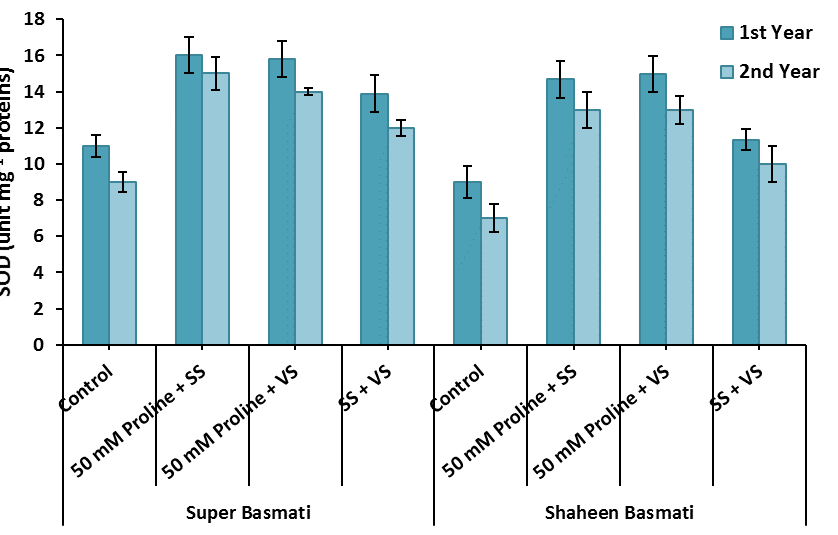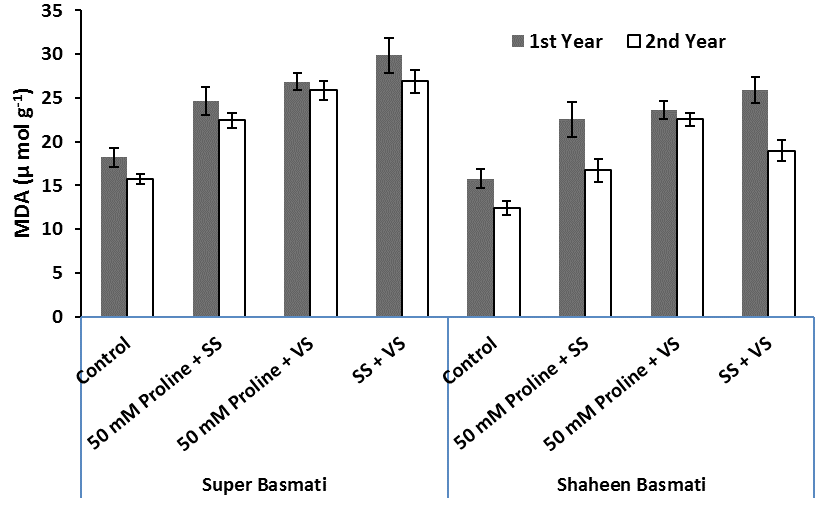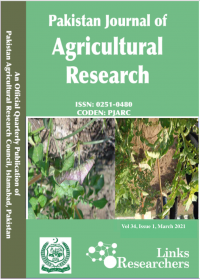Exogenous Application of Proline Improved Salt Tolerance in Rice through Modulation of Antioxidant Activities
Fouzia Tabssum1, Qamar uz Zaman2*, Yinglong Chen3,4, Umair Riaz5*, Waqas Ashraf6, Ambreen Aslam2, Nusrat Ehsan2, Rab Nawaz2, Humera Aziz7 and Shamim ul Sibtain Shah8
1Department of Botany, The Islamia University of Bahawalpur, Pakistan; 2Department of Environmental Sciences, The University of Lahore-Lahore, Pakistan; 3Institute of Agriculture and School of Agriculture and Environment, The University of Western Australia, WA 6009, Australia; 4Institute of Soil and Water Conservation, Northwest A and F University, and Chinese Academy of Sciences, Yangling, Shaanxi 712100, China; 5Department of Agriculture, Soil and Water Testing Laboratory for Research, Bahawalpur-63100, Government of Punjab, Pakistan; 6University College of Agriculture and Environmental Sciences, The Islamia University of Bahawalpur, Pakistan; 7Soil, Water and Environmental Chemistry Laboratory, Institute of Soil and Environmental Sciences, University of Agriculture, Faisalabad-38040, Pakistan; 8FO and S, National Agriculture Research Centre, Islamabad, Pakistan.
umair.riaz@uaf.edu.pk; umairbwp3@gmail.com
Figure 1
Influence of proline application on CAT activity of different rice genotypes under saline conditions in field experiment.
Figure 2
Influence of proline application on SOD activity of different rice genotypes under saline conditions in field experiment.
Figure 3
Influence of proline application on MDA activity of different rice genotypes under saline conditions in field experiment.










